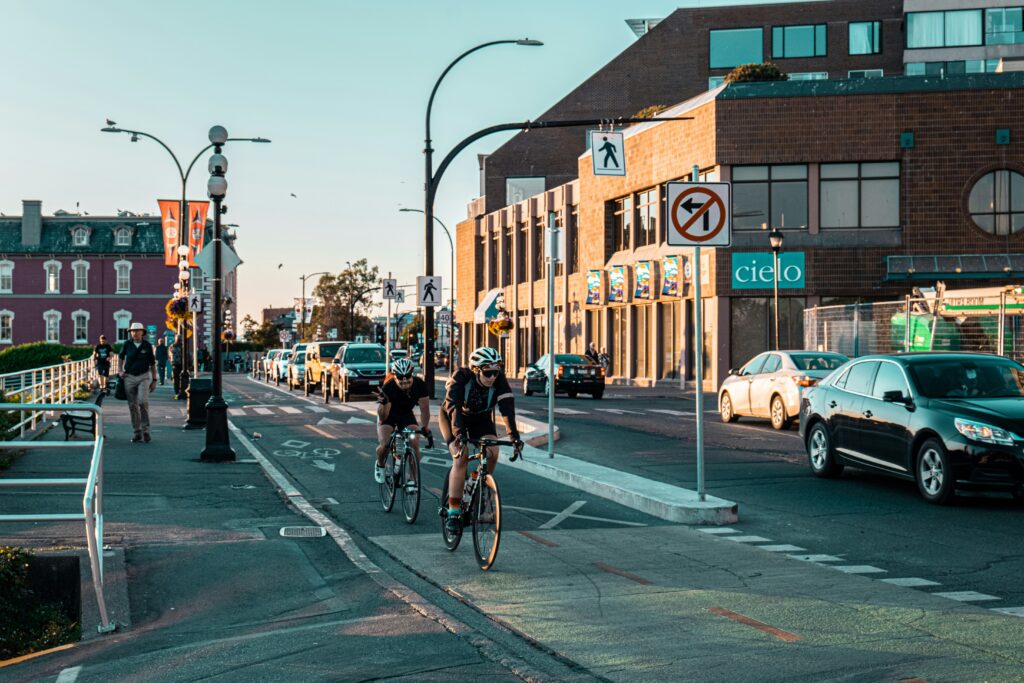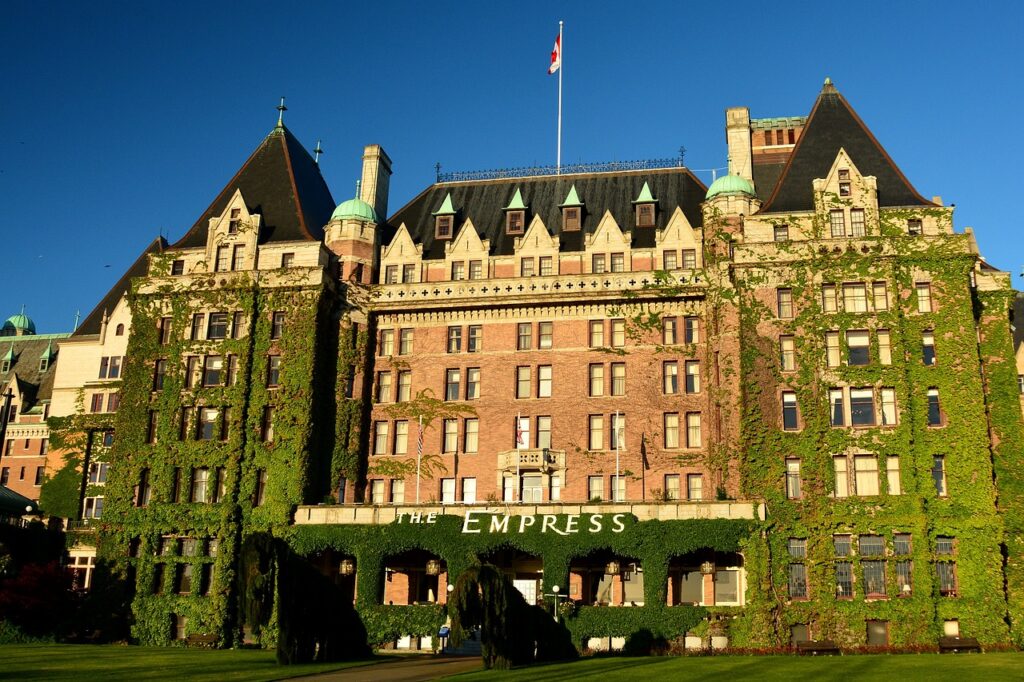Any move is tough. Whether it’s down the street or across the globe, there are things that need to be planned and one of the biggest questions is always: what is the cost of living there? When it comes to thinking about a move to Canada, one of the top destinations for expats is Victoria, British Columbia. This little Canadian city on the south tip of Vancouver Island, is filled with European charm, stunning streets and epic natural beauty – it’s no wonder it’s one of the top destinations in the world to live and visit! While the city is stunning, it can be expensive and the average cost of living in Victoria depends on many factors: whether you’re relocating as a single person or a family, where in Greater Victoria you’re planning to settle and what kind of employment you might be able to find in the capital city. For more information about moving to Victoria have a look at the Welcome BC website.
How to Determine the Cost of Living?
While the cost of living is undeniably important, so is quality of life. In Toronto, Ontario and Metro Vancouver, British Columbia housing prices have skyrocketed making both cities difficult for newcomers to be able to afford. However, these cities offer world-class culture, unparalleled public transit, high paying employment opportunities and so much more.
Cities like Winnipeg, Manitoba and Levis, Quebec are both affordable Canadian cities with rich history and dynamic communities but if you choose to live there, you’ll have to contend with the long, freezing winters and sticky, hot summers.
Calgary, Alberta right near the British Columbia border, is a vibrant city with many employment opportunities, a vibrant arts scene and comparatively affordable housing. However, Calgary also contends with long, freezing winters that can be difficult to endure depending on what you’re used to.
If you’re thinking about relocating from Seattle in the USA to Victoria BC, you’ll be familiar with the climate but the heavy tariffs and taxes that Canadians pay can be shocking – on the other hand, Canadian public health care is a real advantage to moving to Canada as a whole.
With so many factors at play, one of the best tools to see the cost of living breakdown is a cost of living index like the one offered by Numbeo.
Employment Opportunities
With some of the lowest unemployment rates in the country and many growing sectors looking for employees, whether you’re a student looking for casual employment or a professional interested in transferring your skills, Victoria has many job opportunities.
One of the biggest challenges that people face who live and work in Victoria is the wage to cost of living ratio. Given the rising housing and living costs in the city in recent years, employers have struggled to keep wages rising at the same rate. This can be a hurdle for many newcomers who are looking for employment in Victoria.
The sectors with the most opportunities are with the Provincial Government, tourism, hospitality, healthcare, construction and retail. In the last few years, Victoria has also had a growing tech sector that offers incredible opportunities for those looking for jobs in this field.
Additionally, there is a thriving community of retirees in Victoria who have escaped the cold weather of eastern provinces to retire on the west coast. If you’re retired and thinking about a relocation, Victoria affords a high quality of life for active retirees.
Housing Market
There has been lots of talk about the rising prices in the Canadian housing market and Victoria house prices are no exception. With record breaking highs year after year, the rent prices and real estate costs in Victoria are prohibitive to many prospective residents.
On average, a 1 bedroom apartment rental in Victoria is around $2,000 per month which can be a daunting price to carry on your own. For a family of four relocating to Victoria, you’ll want to budget anywhere from $3,500 to $4,000 per month for a three bedroom rental. For larger homes with more rooms you can expect to pay much more.
If you’re looking into real estate, you’ll need approximately $1 million to buy a home in central Victoria.
One of the ways that many residents have offset these costs is to live outside of the centre of Victoria, places like the Saanich Peninsula and Langford. While the house prices in these areas are less than in Victoria, the prices are still high and the inconvenience of commuting can be a burden and certainly something to consider when researching.
Ultimately, if you’re hoping to relocate to Victoria, be sure to have a healthy budget for housing whether you’re renting or buying and staying in an EMR long-term rental can help you get a clearer picture of living in Greater Victoria!
Food Costs
The cost of food in the capitol region is high, especially if you’re dining out often. While there are some fast food places and inexpensive restaurants that can cut down on the cost of food in Victoria, by far the best way to stay within budget is grocery shopping and preparing food at home.
Groceries can also be a high expense in Victoria but depending on where you shop and whether you’re a savvy shopper you can make your money go a long way. There are a wide variety of grocery stores from specialty stores that carry high-end organic products to budget grocery stores so it can be prudent to peruse them all while you’re staying in Victoria if you’re planning on relocating.
Alcohol is also quite expensive in BC where tariffs and taxes bump the prices of wine, beer and spirits up. Domestic beer and wine can be some of the best priced in the stores, followed by those from countries where Canada has free trade agreements with. Still though, the cost of your favourite libation is guaranteed to be higher than expected in Victoria.
And while we all love a decadent coffee shop cappuccino, this habit can cost quite a bit over time. However, in Victoria you have access to excellent locally roasted coffee, dairy-free alternatives and high quality local milk to make the perfect café every morning!
Transportation
There are lots of ways to get around Victoria! If you prefer not to drive, Victoria has many dedicated bike paths and extensive public transit system that services all of Greater Victoria. For many residents, commuting via public transit or cycling are preferred as the traffic in the city can quickly become congested, especially during rush hour on the weekdays.
You can purchase a monthly pass to commute quickly and easily around the city on public transport and there are many cycling maps where you can plan your trips through the city.
Utilities
Monthly utilities can vary widely depending on your needs, the number of devices you have and the size of your home. On average, basic utilities such as electricity, heating and cooling, water, and garbage are ~ $150, cell phones cost ~ $100/line with adequate data, unlimited local calling and text and home internet is typically also ~ $100 for 60 Mbps or more. Basic cable packages vary by provider and with streaming services, monthly entertainment bills can add up.
Sports and Leisure
Maintaining an active lifestyle in Victoria is very easy to do with incredible outdoor recreation that you can enjoy for free, many private gyms and community centres that offer weight rooms, pools, courts and fields depending on the facility. Private gym memberships are typically more expensive than community centre memberships but with such mild weather, many Victorians choose to take advantage and exercise outdoors by jogging, hiking, cycling, bouldering, kayaking and much more.
Childcare
For many years, childcare costs in Victoria have been astronomical but recently many daycares have adopted the $10 a Day childcare model that helps families alleviate the costs of necessary childcare. While this government program has helped offset the monthly costs, it hasn’t addressed the other problem with childcare in BC: availability. It can be a daunting task to find a daycare that has space available to accommodate your child that is in a convenient area.
Similarly, many parents looking for before and after school care for their school-aged children face long waitlists and high costs for these programs. It can be a disheartening juggling act for many families and an overwhelming burden for new families to the area.
Quality of Life
While there are many costs and considerations to moving to Victoria, this capital city offers a very high quality of life. There are excellent hospitals that provide free healthcare, safe public schools, a clean and efficient transit system, stunning urban planning that enhances the natural beauty of the area, incredible community centres, low pollution, top-quality food grown locally, government stability and so much more. In fact, when you look at the quality of life index for Victoria, the only area that lowered the score for quality of life was cost of living meaning, if you can afford to live in Victoria, it is one of the best places in Canada to live
Conclusion
If you’re seriously thinking about relocating to Victoria, one of the best first steps is to book a long term rental in your area of interest and see how it fits! The bottom line though is that there is a lot that this city can offer…if you can afford it.





